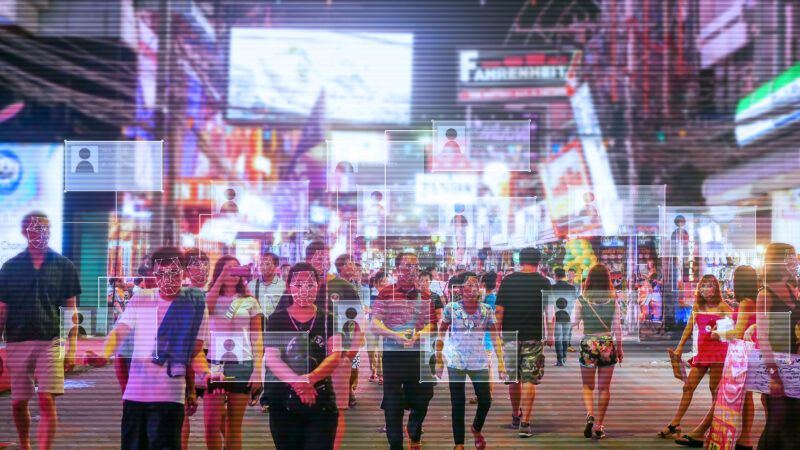New Orleans City Council Considers Ordinance To Adopt Real-Time Facial Recognition Technology
America is slipping steadily down the slippery slope to a surveillance state.

The New Orleans City Council is considering an ordinance that would allow the city's police department, in the name of fighting crime, to use real-time facial recognition technology to find and track people as they move about the city. As The Washington Post reported last month, New Orleans police had already been secretly receiving real-time facial recognition notifications via a private surveillance camera network operated by Project NOLA.
Reason's Autumn Billings noted back in May that use of these automatic alerts may have violated an earlier city ordinance meant to protect the public's privacy from a generalized surveillance tool and prevent wrongful arrests due to software errors. "This is the first known time an American police department has relied on live facial recognition technology cameras at scale, and is a radical and dangerous escalation of the power to surveil people as we go about our daily lives," warned the American Civil Liberties Union in the wake of the Post's revelations. Undeterred by these concerns, the proposed city ordinance would sweep those protections away and make it legal for the New Orleans Police Department to use real-time facial recognition notifications.
The police would activate real-time surveillance by uploading an image of a suspicious person into the facial recognition system. The system scans the faces of all citizens as they walk past the video camera network, seeking to identify and then track the person of interest. Of course, if the police can track criminals, they can track you too. But what's the big deal? After all, as Nazi propaganda minister Joseph Goebbels purportedly observed, "If you have nothing to hide, you have nothing to fear."
To be sure, the ordinance, as currently written, would allow the police to only "use facial recognition technology while investigating crimes and missing persons cases," writes StateScoop. "It would not be permitted for proactive policing, and a facial recognition match alone will not be regarded as enough evidence to establish probable cause, and therefore cannot be used as the sole reason for an arrest."
This means the local police would be prohibited from using real-time facial recognition to identify people seeking to procure an abortion, or engage in same-sex intimacy, or determine immigration status. Of course, these protections could be overturned just as easily as the earlier prohibitions on the police use of real-time facial recognition are about to be.
"In the coming years, both the federal government and some state governments may intensify surveillance and data collection efforts, targeting immigrants, punishing those involved in seeking or providing abortion services, and cracking down on gender-affirming healthcare," notes Daniel Solove, a George Washington University law professor.
In fact, this is already happening. As 404 Media reports, some Immigration and Customs Enforcement (ICE) agents are using the Mobile Fortify App that provides them with real-time biometric identity verification capabilities utilizing facial images captured by the camera on an ICE-issued cell phone. This point-and-shoot smartphone application can identify people using images repurposed from those collected for other objectives by Customs and Border Protection and the Department of Homeland Security.
And even if you are currently unconcerned about pervasive government surveillance of these activities, do you want the police to know what religious services you attend; where your therapist's office is; what bars you stop by late nights; with whom you meet at political rallies; your attendance at Alcoholics Anonymous meetings; or your clandestine dates with lovers?
"Obscurity in public places is a key component of freedom," argues Solove. "Living under the constant watchful eye places us in an Orwellian world where Big Brother is always observing. Even if it does not directly chill activities such as reading or protesting, it can blunt what is said or done. It adds an element of fear; and it also enables for greater government control. Public surveillance makes people feel less free; it impedes their free expression of selfhood."
Some lawmakers have tried to slow the march toward the pervasive real-time government surveillance of Americans. In 2023, Sen. Ed Markey (D–Mass.) introduced the Facial Recognition and Biometric Technology Moratorium Act, which have made it "unlawful for any Federal agency or Federal official, in an official capacity, to acquire, possess, access, or use in the United States (1) any biometric surveillance system; or (2) information derived from a biometric surveillance system operated by another entity."
In the meantime, America is slipping steadily down the slippery slope to a surveillance state.


Show Comments (24)